Mozambique: Fight against terrorism “remains top priority”
Mozambique: Are there fears of excessive militarisation in Cabo Delgado? – DW

FILE - For illustration purposes only. [File photo: DW]
The military support announced by the United States raises concerns, not only in Mozambique. In an interview with DW, counterterrorism expert Jasmine Opperman maintains that this is the wrong way to pacify Cabo Delgado.
On Monday (15-03), the United States Special Operations Forces launched a two-month training program to strengthen the capacity of the Mozambican military to combat the insurgents carrying out attacks in Cabo Delgado, in the north of the country.
The previous week, on March 10, the US State Department designated ISIS-Mozambique, also known as Ansar al-Sunna, and its leader Abu Yasir Hassan, as terrorists.
On the geostrategic side, Jasmine Opperman, researcher at ACLED, a North American platform for the analysis of armed conflicts, understands the American support as a “true step towards expanding its [the USA’s] influence and presence” in Mozambique. In an interview with DW Africa, the counterterrorism expert says she fears the excessive and counterproductive militarisation of Cabo Delgado.
DW Africa: Will the fact that the United States has designated ISIS-Mozambique as an international terrorist organisation give it the power to interfere in the internal management of the crisis in Cabo Delgado?
Jasmine Opperman (JO): What we are seeing with the US designation is truly a first step in expanding its influence. And not only influence, but also presence in terms of training and what will follow. Not only in Mozambique, but also in the Democratic Republic of Congo. Although Tanzania was not mentioned, I also include this country. It is a clear attempt by the US to take root in Mozambique and in several countries in Africa.

DW Africa: Can this classification by the ISIS-Mozambique group overshadow the internal origins of the conflict?
JO: First of all, I think it was a big surprise to see the United States’ announcement on ISIS-Mozambique. Even though reference has been made to the leader, there are open questions. Is he [Tanzanian Abu Yasir Hassan] the leader of the insurgency? I don’t agree. I think that to say that it is a single leader is a total simplification. This is the internationalisation of Cabo Delgado, ignoring the local roots of the problem in question. And in saying this, I am not denying the voice of the extremists. But this gives Islamic State a status in Mozambique that it does not have. The concern now is that the American narrative is supporting the narrative of the government of Mozambique, which does not want to recognise the local origins [of the problem]. So it is very likely that we will see – and the risk is extremely high – the population of Cabo Delgado, and all local dissatisfaction, neglected.
DW Africa: So, does the sovereignty used as a shield by the Mozambican government to prevent foreign entry into the country, fall away?
JO: For the time being, I don’t see Mozambique retreating in its position in terms of foreign troops on the ground. The emphasis remains on supporting military training. But the two-month training period predicted by the US is too short to make any difference. I understand that the US is trying to expand its influence and I would not be surprised to see an increase in foreign presence in Cabo Delgado.
DW Africa: What return will the US want for the military support it is giving to the Defence and Security Forces?
JO: We are witnessing an American policy focused on providing military support and equipment. Just the same as the Mozambican government has already done. The objective is to achieve military successes. Iraq has taught us that this is not the solution. But the United States and Mozambique will facilitate the militarisation of the region, and a sustainable solution for a neglected population will be of secondary importance.


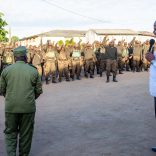
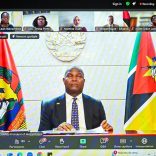
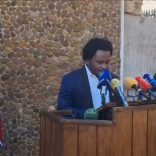
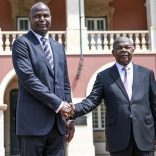

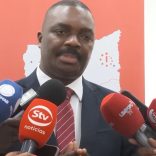





Leave a Reply
Be the First to Comment!
You must be logged in to post a comment.
You must be logged in to post a comment.